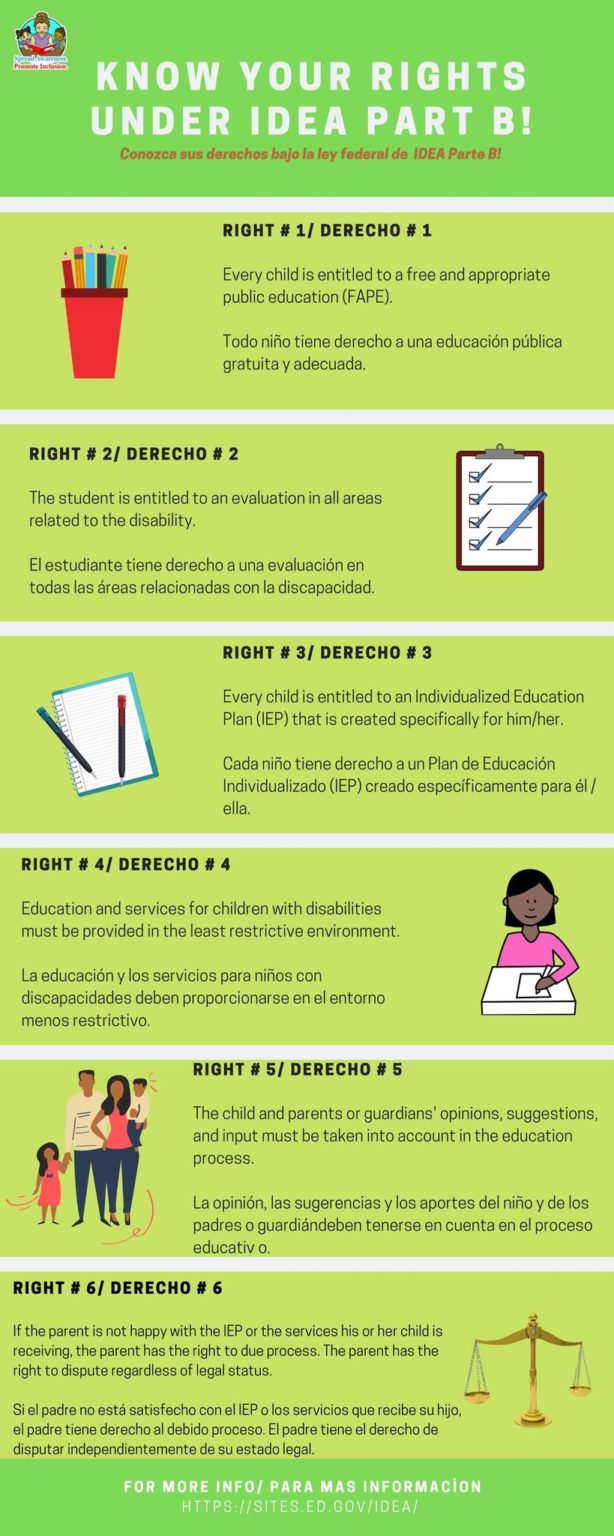As a caregiver, ensuring your child receives the best education tailored to their unique needs is a top priority. For children with disabilities, navigating the education system may seem intimidating. However, there’s a crucial federal law in place that provides essential protections and support for your child’s education journey – the Individuals with Disabilities Education Act (IDEA). Understanding your rights under IDEA empowers you to become a more effective advocate for your child, ensuring they receive the necessary assistance to flourish in their educational pursuits.
IDEA: Ensuring Inclusive Education for All
The Individuals with Disabilities Education Act (IDEA) is a federal law that safeguards the educational rights of children with disabilities. Enacted in 1975, IDEA ensures that all eligible children have access to a free and appropriate public education, tailored to their individual needs, in the least restrictive environment possible. This powerful legislation seeks to level the playing field, providing children with disabilities the necessary tools to reach their full potential.
Key Rights under IDEA
The Right to Participate in Developing an Individualized Education Plan (IEP)
An IEP is a personalized roadmap for your child’s education. As a caregiver, you have the right to actively participate in the development of your child’s IEP. Collaboration with teachers and school staff allows you to contribute valuable insights into your child’s strengths, challenges, and unique learning style. Together, you can create an effective plan that addresses your child’s specific educational needs.
The Right to Request Evaluations and Independent Educational Evaluations (IEE)
To ensure that your child receives appropriate support, IDEA grants you the right to request evaluations. These assessments help identify your child’s specific disabilities, strengths, and areas that require assistance. Additionally, if you disagree with the results of the school’s evaluation, you have the right to seek an IEE conducted by an unbiased professional at the expense of the school district. This process ensures a comprehensive understanding of your child’s needs, paving the way for better-tailored support.
The Right to Resolving Disputes through Mediation and Due Process
In the journey to secure the best education for your child, disagreements may arise. IDEA offers a structured system for resolving disputes between parents and schools. Two common avenues are mediation and due process. Mediation is a voluntary process where a neutral mediator helps facilitate communication and guide the parties towards a resolution. If mediation fails, due process provides a formal mechanism for resolving conflicts through an impartial hearing. Understanding these options ensures you can navigate any obstacles that may emerge along the way.
Empowering Parents through Education Advocates
Navigating the complexities of IDEA may be overwhelming for some parents. Thankfully, there are education advocates who specialize in assisting parents of children with disabilities. These experts are well-versed in the intricacies of the law and can provide guidance, support, and advice throughout the process. If you find yourself uncertain about your rights or need assistance in advocating for your child, consider reaching out to a special education advocate who can be your ally and help you navigate the educational system effectively.
As a parent and caregiver, your advocacy plays a crucial role in ensuring your child’s success in education. Familiarizing yourself with the rights provided by the Individuals with Disabilities Education Act (IDEA) empowers you to become a more effective advocate for your child. Remember, you have the right to participate in developing your child’s Individualized Education Plan (IEP), request evaluations and independent educational evaluations, and resolve disputes through mediation and due process.
By understanding these rights and seeking support from education advocates when needed, you can confidently collaborate with your child’s educators to provide them with the support they need to thrive academically and beyond. Together, let us continue to champion inclusive education and create an environment where every child has the opportunity to reach their full potential.

